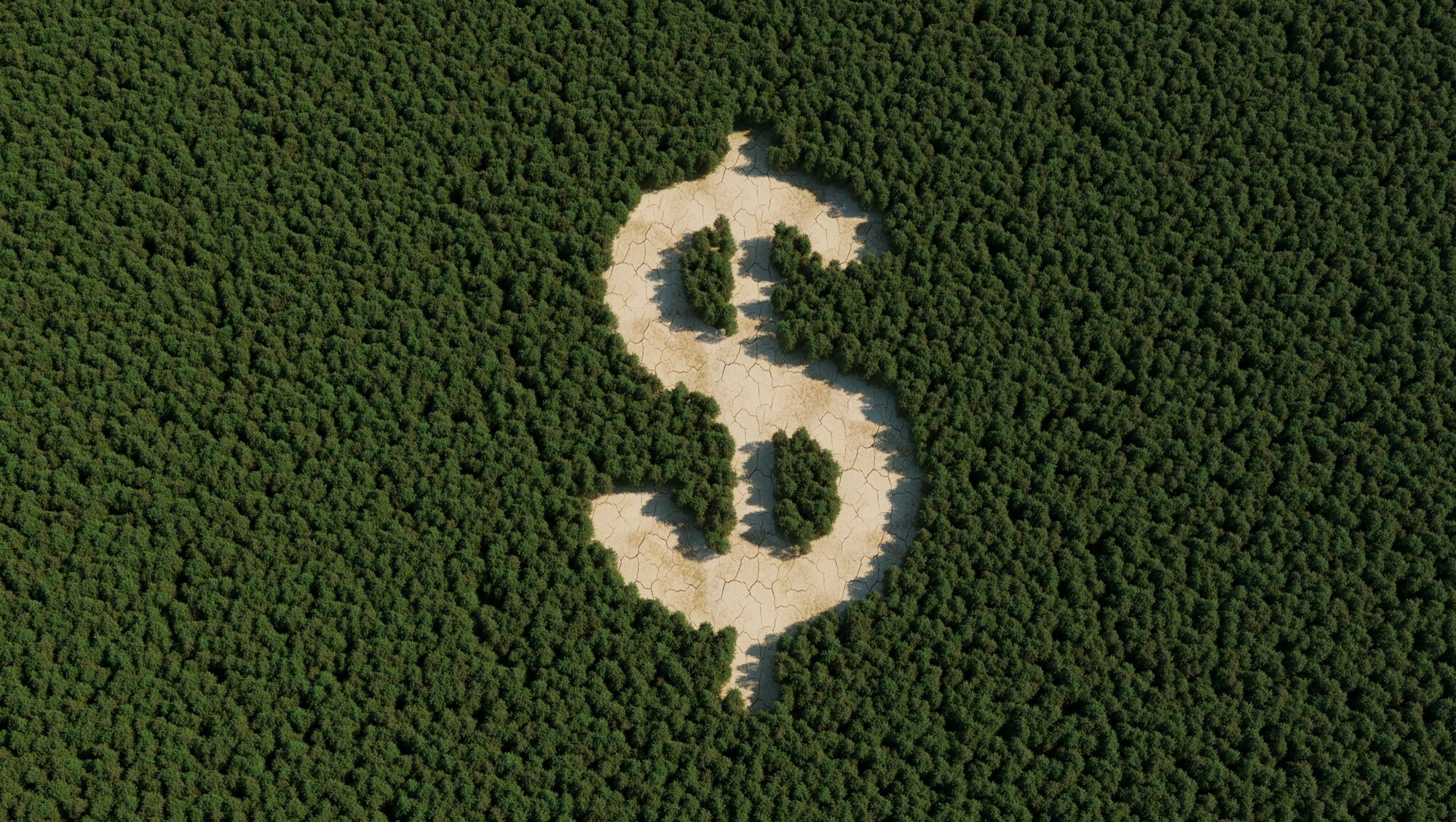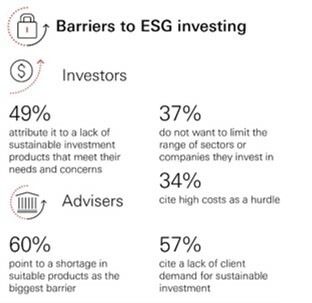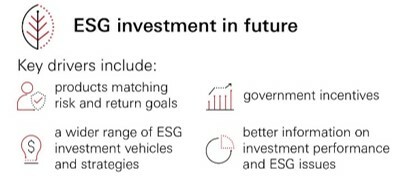
Cover Story

A HSBC Asset Management survey of investors from China, Hong Kong and Singapore found that over 84 percent of investors believe that sustainable, environmental and ethical issues are central to managing their investments. For Singapore investors, that figure is closer to 4 out of 5 investors.
However, only 26 percent (both overall survey and in Singapore) stated that they will explicitly consider ESG factors when investing.
How did this situation come over, given the increasing amount of information and education about ESG in recent times?
The survey finds that nearly 50 percent of investors in the region find the lack of sustainable investment products that meet their needs and concerns a key reason. Other relatable reasons for about close to 40 percent of investors include the wish to not limit the range of sectors or companies they invest in as well as high costs of such products.

Advisors that participated in the survey concurred with the investors; with 60 percent pointing to a shortage of suitable products as the biggest barrier, followed by 57 percent saying the lack of client demand is also a factor.
Bridging the gap between information and action
Mr James Cheo, Chief Investment Officer, South-east Asia at HSBC Global Private Banking and Wealth was recently featured in a news article about how HSBC has made sustainable financing and investment a priority. The organisation sees a major opportunity in the transition to a net zero economy for investors.
He shared three broad themes that will offer investment opportunities. These are:
Energy transition: This theme is anchored on a fact that many governments and industries have made pledges about moving to net zero carbon emissions. This transition to a low-carbon future will involve massive changes – across policy, regulation, infrastructure – that will impact the way industries and society currently functions.
Companies that successfully adapt to the transition will emerge as winners. The industries that help to produce (or support the production) of low-carbon or renewable energy, as well as those developing new technologies that help the world and the transition process will be important.
Protecting biodiversity: A World Economic Forum report shared that more than half of the world’s GDP is moderately or highly dependent on nature. Any activity that damages nature and our biodiversity therefore threatens global economic activity.
Winners of this theme are those that operate in the circular economy, and those that focus on or promote upcycling, recycling and reusing products to reduce overconsumption and wastage.
Social factors: Research shows that socially responsible organisations are performing better over the long term. The general consensus is that companies that actively practice social responsibility, for example, through having a diverse workforce or talent development tend to have stronger leadership, happier employees, and more resilient operations.

In terms of advice for investors looking to make a shift towards including more sustainable investments, using their portfolios to navigate current uncertainties, Mr Cheo shared:
“You have to look for quality companies that can thrive with higher prices, that can navigate a volatile environment. That’s why we think that ESG leaders are going to be one of the winners that will come out from this uncertain macro-environment.”
Image credit to HSBC Asset Management. The full infographic can be found at this link.